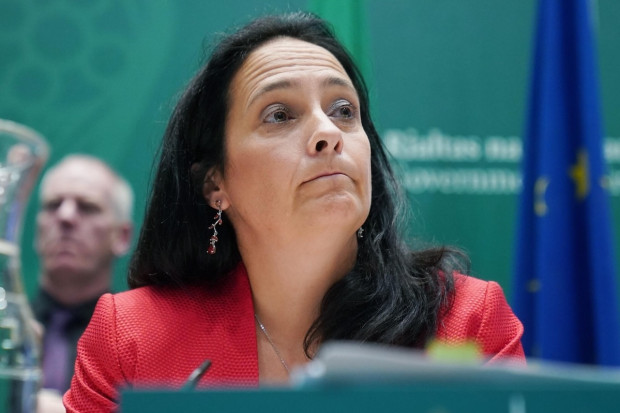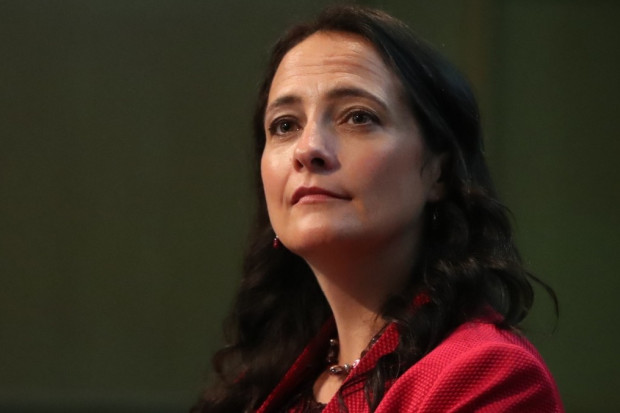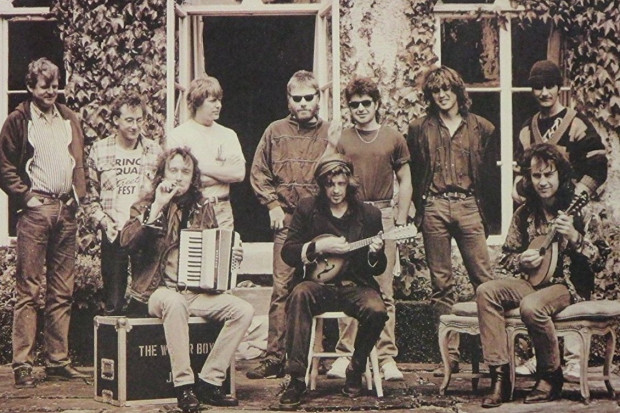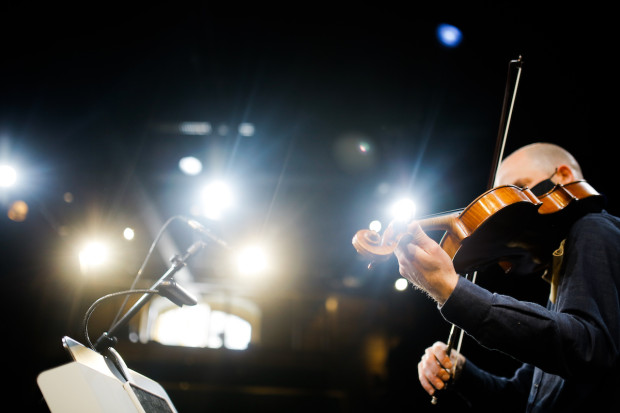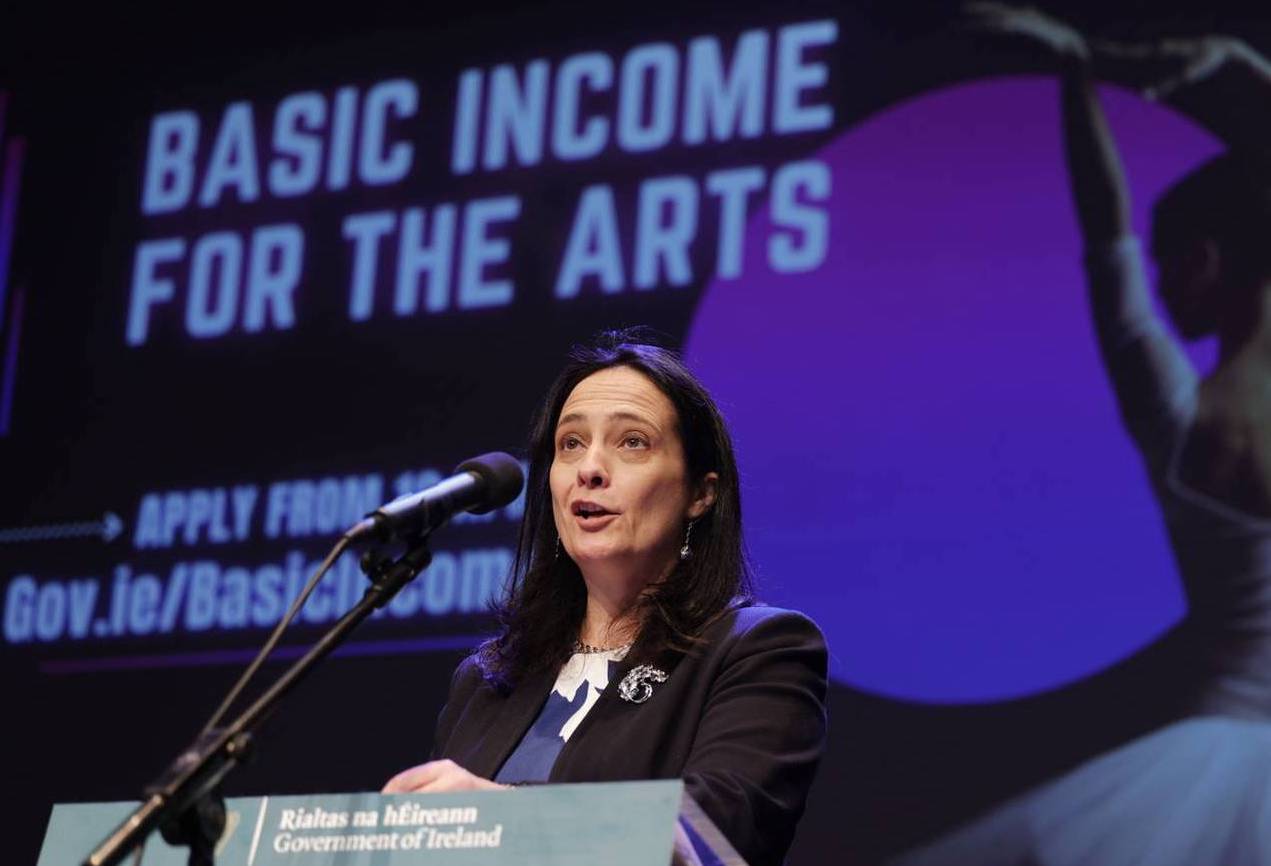
Minister for Tourism, Culture, Arts, Gaeltacht, Sport and Media, Catherine Martin
Recipients of Basic Income for the Arts Report a 10% Decrease in Depression and Anxiety
Following the launch of the Basic Income for the Arts (BIA) pilot in September 2022, which sees 2,000 artists receive a payment of €325 per week for three years, the Department of Tourism, Culture, Arts, Gaeltacht, Sport and Media has published research on the impact of the first six months.
The research is based on data from recipients of the scheme, and also a control group of artists and creative arts workers who do not receive the payment, in order to draw comparisons.
Three research documents have been published this week: Basic Income for the Arts Initial Impact Assessment by Nadia Feldkircher, Doire Ó Cuinn and Brian O’Donnell, and Demographics of the Arts Sector and Arts Work Conditions & Perspectives by Ó Cuinn and Feldkircher. The Initial Impact Assessment report has been peer reviewed by the ESRI and the Department of Enterprise, Trade and Employment.
Among the findings are that depression and anxiety experienced in the previous 4 weeks to the scheme decreased by almost 10%. The report says that ‘these effects are statistically significant.’ The artists and creative arts workers also reported that they are spending 3.5 hours more on their arts practice per week, 3 hours less working in other sectors per week, and life satisfaction, measured on a scale of one to ten, increased by more than half a point.
In addition, the publications showed that BIA recipients were 19.2% less likely to have difficulty making ends meet compared to the control group.
Commenting on the research, Minister for Arts Catherine Martin, who established the scheme following the report of the Arts and Culture Recovery Taskforce, commented:
I am reassured from the findings, which demonstrate that artists and creative arts workers in receipt of the payment are experiencing less anxiety and depression, spending more time working in their chosen fields, and investing more in their arts career. It shows that the scheme has had a positive impact during the first six months of payments and has the potential to transform creative practice.
In an online panel discussion that took place yesterday (6 December) to mark the publication of the reports, Minister Martin said that the research data was essential to make the case for the rolling out of the scheme after the three-year pilot is complete.
‘The research element, to me, is of equal importance to the actual payment,’ the Minister said, ‘and may actually be of more importance by the time we get to the end of this. We need the data, we need the evidence, to make it undeniable at the end of this three years, that it needs to be rolled out to each and every artist. That is my hope. … I would like to see the Basic Income making the arts a realistic career choice… for anyone that has that creative drive.’
Home ownership, education and artist location
The reports contain a range of other interesting findings. With regard to artists and home ownership, the Demographics of the Arts Sector document states that ‘Home ownership in the sample appears to be out of step with the general population’. It says that just 35.85% of the artists and creative arts workers taking part in the research own their own home in comparison to 65.77% among the general population. In addition, a total of 44.43% of respondents are in rented accommodation
The research also shows that respondents are highly educated, with 86.51% having a third-level qualification compared to 53% for the general population.
Finally, with regard to the location of artists and arts workers in Ireland, it was found that Leitrim has 72% more than would be expected based on its population proportion, followed by Sligo and Wicklow at 43% more, Galway at 39% more, Dublin at 33% more, and Clare at 14% more. Apart from Cork, all other counties had at least 10% fewer artists and creative arts workers than would be expected based on their population, with Tipperary and Offaly at the lower end, with 55% fewer and 54% fewer respectively.
Commenting on the reports, Maria Fleming, Chair of the National Campaign for the Arts, said:
The Basic Income initiative is a landmark commitment of the government to invest in the arts industries of Ireland. With most recent figures showing that the arts industry has been one of the slowest to recover from the pandemic, the trial of the Basic Income provides a much needed stabilisation to the precarious working conditions of our highly skilled arts workforce. The NCFA applauds the scheme, and welcomes these reports as further evidence to support the need for its full scale rollout after the pilot phase.
Major Arts Conference in 2024
Minister Martin also said during the online panel discussion yesterday that she plans to hold a major conference in the spring of next year to bring the arts sector together. The conference will be titled ‘Status of the Artist’ and will mark the 100th anniversary of W.B. Yeats receiving the Nobel Prize for Literature in December 1923. Further details will be announced in due course.
To download the research documents, see below. For more, visit www.gov.ie.
Subscribe to our newsletter.
Published on 6 December 2023












